|
Genres, Themes, Actors, and Directors:
- Corruption
- Detectives and Private Eyes
- Diane Ladd Films
- Faye Dunaway Films
- Jack Nicholson Films
- Los Angeles
- Murder Mystery<
- Roman Polanski Films
Response to Peary’s Review:
Widely acknowledged as a modern American classic, Roman Polanski’s Chinatown is indispensable viewing for all film fanatics. As Peary notes, it’s a “superlative detective picture” with a “powerful Oscar-winning script”, and a central mystery which “gets more complicated by the minute”; indeed, one must watch carefully and attentively in order to catch all the story’s nuances. The performances across the board are excellent, with Jack Nicholson particularly well-cast as hardboiled Jake Gittes, a savvy P.I. who nonetheless always seems to be one step behind the game. He’s often unable to calculate who’s guilty and who’s not; it’s only through sheer persistence, sly investigative techniques, and a willingness to commit occasional violence that he gets anywhere. Faye Dunaway is fragile and mysterious as a woman with a heavy past (who may or may not be guilty), and John Huston is truly frightening as Dunaway’s wealthy tycoon father.
In addition to its wonderful performances, Chinatown is full of many unforgettable scenes: Gittes getting his nose slashed by a thug (Polanski in cameo); Gittes spying on Dunaway and a mysterious young woman through a window (and, later, discovering who the woman is); Gittes driving recklessly through an orange grove while being chased by gun-wielding farmers; Gittes smooth-talking his way into a rest home. Perhaps most memorable, however, is the film’s overall look and feel, including John Alonzo’s luminous cinematography, Richard Sylbert’s meticulous production design, Jerry Goldsmith’s score, and Polanski’s excellent use of outdoor locales in the greater L.A. area (ranging from Catalina Island to concrete sewers to farmland to — famously, in the final scene — Chinatown itself). While Chinatown is too depressing to be a personal favorite, there’s no denying the sheer visceral power of its story, characters, and settings.
Redeeming Qualities and Moments:
- Jack Nicholson as J.J. “Jake” Gittes
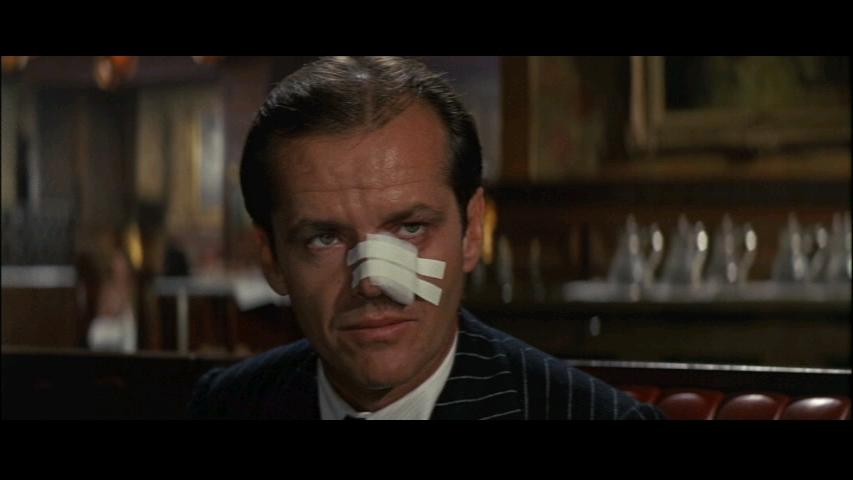
- Faye Dunaway as Evelyn Mulwray
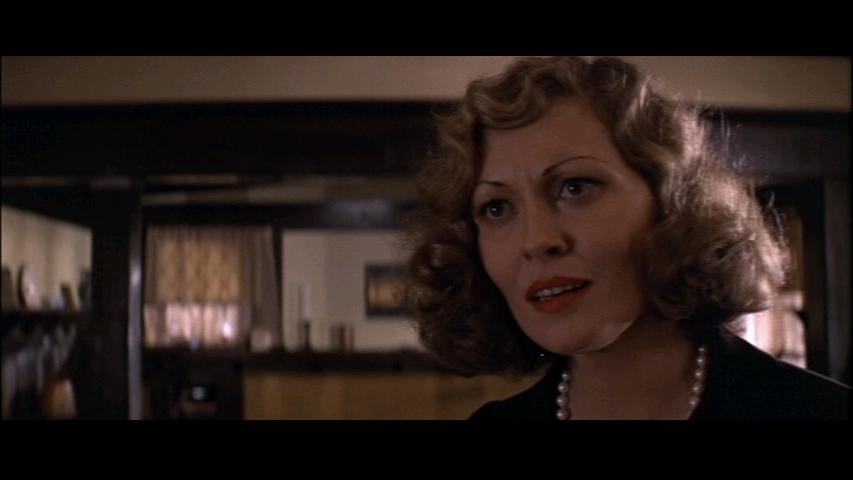
- John Huston as Noah Cross
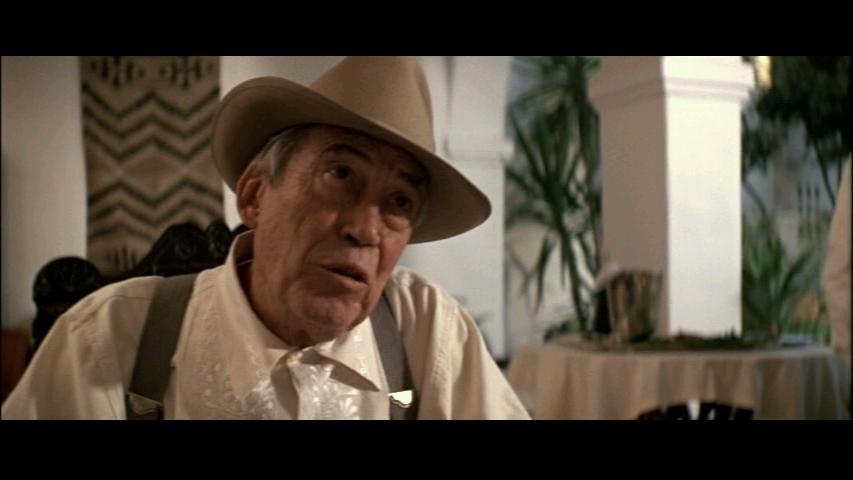
- Jake’s clever ruse at the public documents office
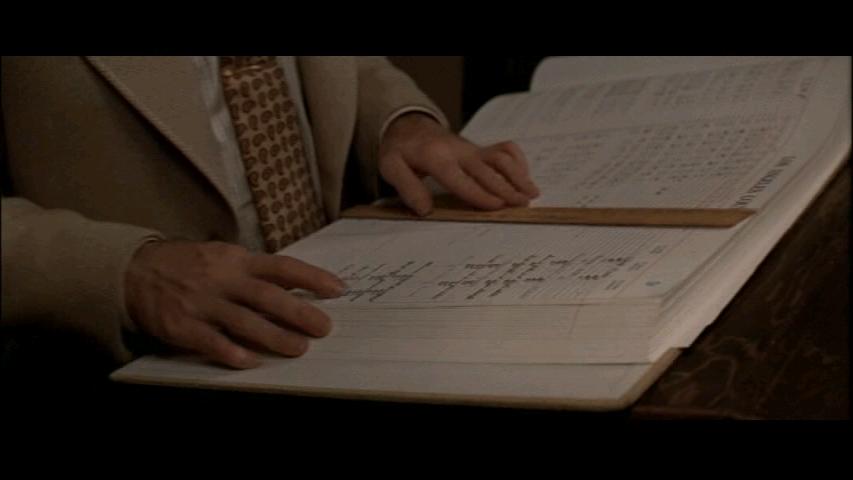
- The infamous “nose slashing” scene (with a cameo by Polanski)
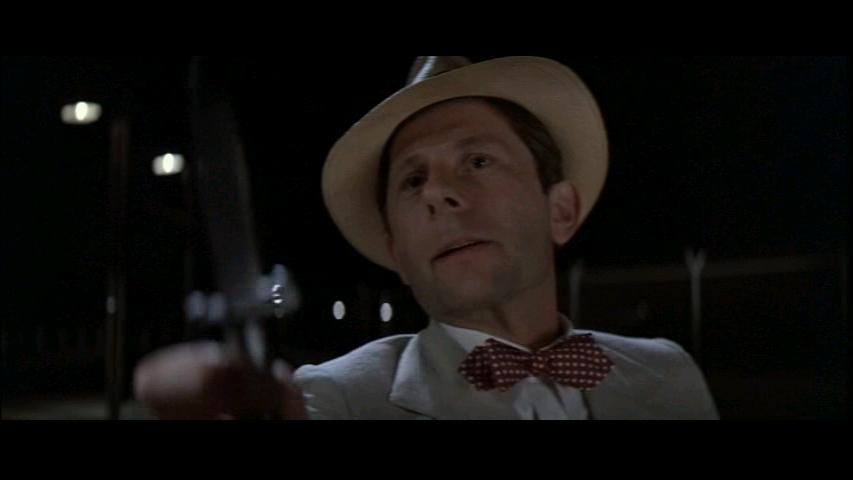
- Evocative period set designs, props, and costumes
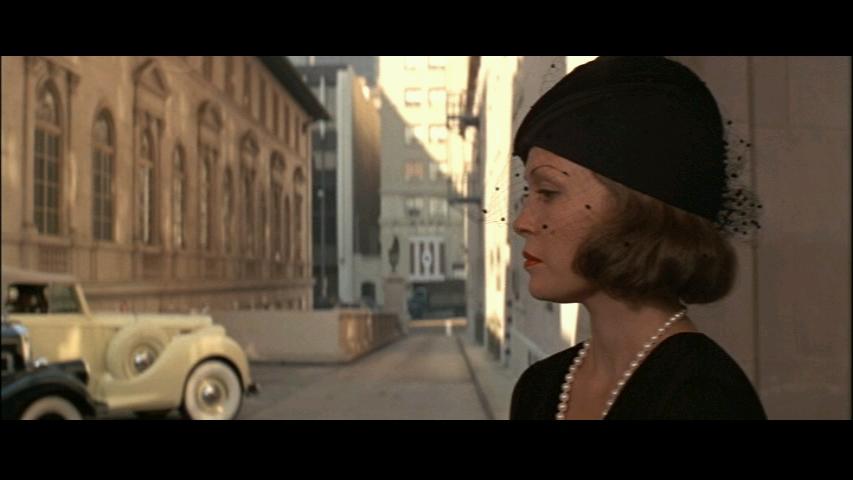
- Good use of diverse L.A. landscapes
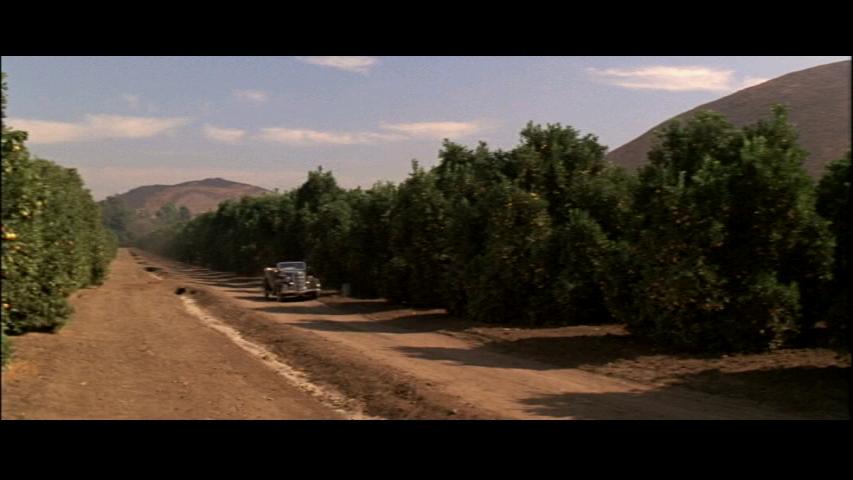
- Gorgeous cinematography
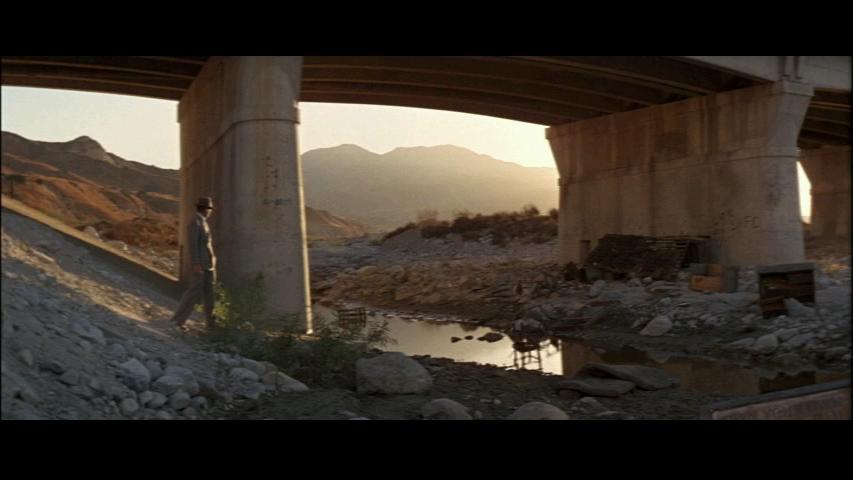
- Robert Towne’s intelligent script
- The surprise plot twist near the end
Must See?
Yes. This highly esteemed detective flick is definitely must-see viewing.
Categories
- Genuine Classic
- Noteworthy Performance(s)
- Oscar Winner or Nominee
(Listed in 1001 Movies You Must See Before You Die)
Links:
|
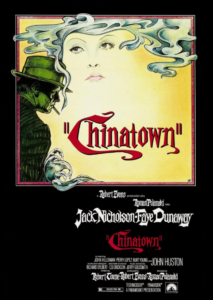








2 thoughts on “Chinatown (1974)”
A humdinger!!! To use another Nicholson title, this is ‘as good as it gets’! Having just re-watched it, I conclude ‘Chinatown’ just gets better with every viewing. Needless to say, A MUST!
Here’s a marvelously constructed mosaic puzzle that simply doesn’t make a false move. There’s not a moment wasted, and you’re grabbed from frame one – well, when frame one is a close-up photograph of a man and woman f*****g in the woods…
Basically, in every department, this is a class act. All one can say about it, really, is see it! I recall first seeing it in the theater – and it was a knockout! And still is. I see it probably once every other year – and it always seems fresh.
If I have a favorite scene, oddly it’s a peripheral one: when Nicholson goes to the Hall of Records and has to deal with a snooty attendant. I don’t know why I like this scene so much; maybe it’s because Nicholson rises to the occasion when dealing with an a-hole – and it’s a lesson we can all keep in mind.
As memorable as Nicholson and Dunaway are here – this is arguably the best work by both – my fave performance is Huston’s. OK, I’m prejudiced ’cause he’s my favorite director – but he took on a very meaty role here and had a field day with it. In his first lengthy scene with Nicholson, Huston has at least three memorable dialogue bits:
“You got a nasty reputation, Mr. Gitts. I like that.”
“You may think you know what you’re dealing with – but, believe me, you don’t.”
“Of course I’m respectable. Politicians, ugly buildings and whores all get respectable if they last long enough.”
Reportedly, screenwriter Towne fought fiercely with Polanski over turning a happy ending to a cynical one. He later conceded that Polanski’s idea was better for the noir genre it was honoring. Good man, Towne!
Though I admire Jerry Goldsmith’s score – and it fits the piece beautifully – I still wonder what the alternative would have sounded like: apparently, the recorded score by Krzysztof Komeda – who composed music for a number of previous Polanski films, including ‘Rosemary’s Baby’ and ‘The Fearless Vampire Killers’ – was ultimately rejected.
Polanski is easily in my top five directors. Admittedly I’m not all that wild about certain films by him (things like ‘Cul-de-sac’, ‘What?’, ‘Bitter Moon’). But, when’s he’s at the top of his game – as he is here – it’s cinema heaven!
Believe it or not, your favorite little scene in this film (the one with the obnoxious clerk) is mine as well! (See the film still above.) It’s what I flash back on first whenever I think about this movie and the character of Jake Gittes…